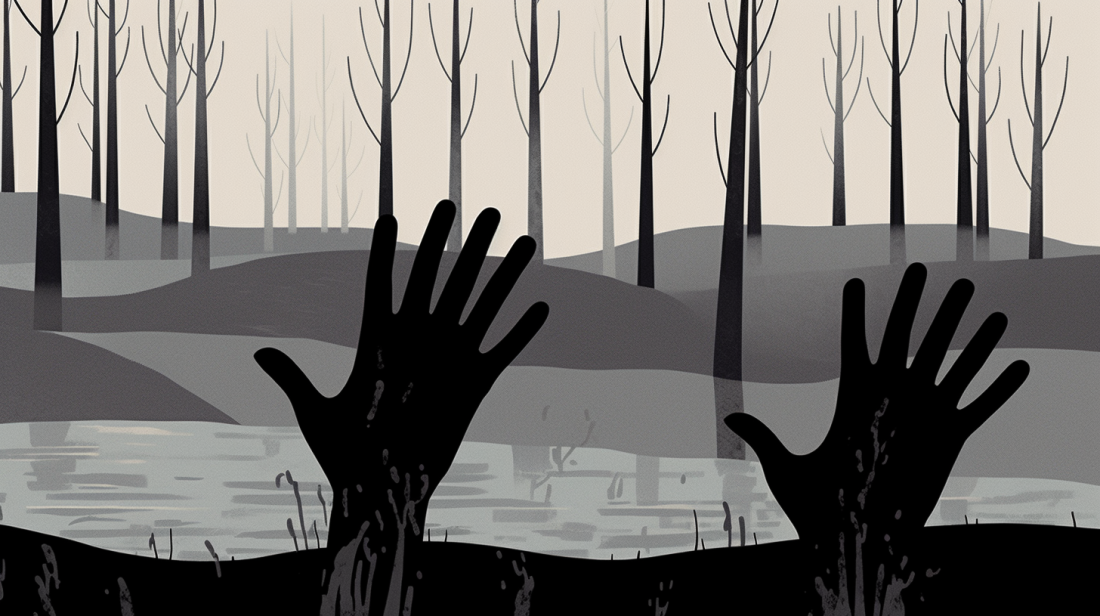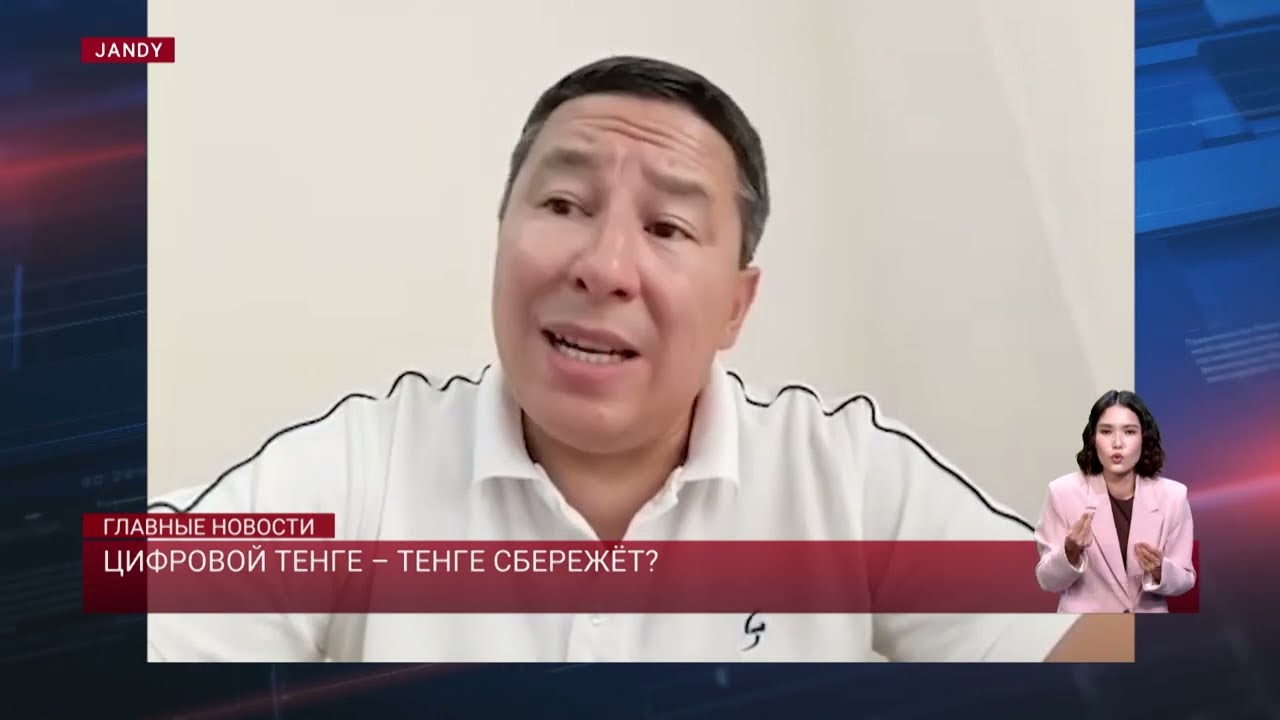Government plans
Unpopular measures must already be taken, including sequestering the budget and liberalizing the economy. What else should we do in an environment where our cup is almost empty, budget expenditures are only growing, and revenues are falling?
TAJ.report listened to the experts participating in the discussion at the TALAP Center for Applied Research on the topic "Is Kazakhstan facing a crisis of state finances". As the reader has already understood from the spoiler, not only is it waiting, we are already in it.
According to Vice Minister of National Economy Azamat Amrin, the new government is reviewing budget priorities.
"The tax and budget policy is aimed at reducing the non-oil deficit to 5% of GDP and ensuring the growth of the National Fund's foreign exchange assets to $100 billion by 2030.
The draft of the new Budget Code simplifies the budget process and creates a methodological basis for managing state finances, ensures accountability of the revenue side of the budget," the official said and told what his head had previously reported.
The budget planning process was bureaucratic, and there was criticism of strategic and budget planning due to their isolation from each other and the lack of opportunity to use budget funds in the next financial year.
"That's going to change now. The new Code has become a framework, blocky (following the example of Singapore), flexible, its content has been optimized by 28%, the process of planning the republican budget itself will be reduced from the usual 8-10 months.
A block of basic expenses of a permanent nature is established, including administrative expenses for the provision of public services, payment of pensions, allowances, and subsidies. They will not be considered in detail every year," Amrin said.
Askar Amrin - Vice Minister of National Economy of the Republic of Kazakhstan
In the second block, an increase in unconditional basic expenses within the framework of existing budget programs will be constantly considered. The third block is spending on new initiatives, the fourth is the formation of a reserve for the initiatives of the president, the reserve of the government and local akimats.
"We have introduced a norm prohibiting the opening of a second or third budget program for one purpose. Previously, up to 13 budget programs may be planned for 1 goal. We analyzed the budget of the Ministry of Industry at that time: 6 strategic goals, 41 target indicators, 35 budget programs and 67 subprograms!" the Vice Minister stated.
Such disunity did not allow administrators of budget programs to effectively and efficiently manage budget funds.
"There is a lot of talk that republican budget expenditures are growing disproportionately to incomes, that there are benefits, preferences, withdrawals from the National Fund, public debt; extra-budgetary funds, quasi-public sector, state support measures that money from the budget is spent on are being excluded from accounting. As a result, the full picture of the real financial capabilities of the state is not visible, forecasting is distorted. The new code is based on transparency, publication of documents, and their accessibility.
The quasi-public sector entities have been obliged to publish information on loans and responsibility for their use," the Vice Minister of National Economy said, acknowledging that the country still does not have a single basic document on the basis of which budget planning work would be based. Programs and concepts are not tied to strategic goals and indicators.
... And reality
Rahim Oshakbayev, an economist at the TALAP Center, noted after the official's speech that the Cabinet of Ministers sets a contradictory task: it is critically important for us to invest in infrastructure, but our financial capabilities are limited.
"On the other hand, we aim to accumulate $100 billion. Why exactly so many? Is it a beautiful figure? In the best of times, the National Fund accumulated $77 billion. So we are faced with a dilemma - either save or spend. It is obvious to me what to spend," Oshakbayev said.
To which Amrin replied – the figure was deduced after calculating forecasts of receipts and withdrawals of funds from the National Fund in the long term.
"There is volatility, but we took a fairly conservative approach when we counted. There is a safety margin in general. Revenues to the National Fund are growing: in 2023 - 6.5 trillion tenge, in 2024 we expect 7.5 trillion tenge," the Vice Minister of the Ministry of National Economy said.
Oshakbayev continued: over the past three years, budget expenditures have increased by 60% or 10.5 trillion tenge. At the same time, money is spent on current tasks, and strategic goals fade into the background.
"Last year's budget, according to expert estimates, was reduced, among other things, by increasing advance payments from businesses – this is about 2.5 trillion tenge. All these figures clearly indicate a crisis in state finances," the economist noted.
Rahim Oshakbayev is an economist
The Ministry of National Economy does not think so.
"The national debt in January 2020 was 23% of GDP, in 2021 – 29, in 2022 – 26, in 2023 – 24, in 2024 we expect 22%.
Is Kazakhstan facing a crisis of state finances? Probably not. If we look at it from the point of view of a long-term forecast, we will analyze and always approach the budget conservatively," said the Deputy Minister of Economy.
Chronic deficits and budget eaters
Meanwhile, the director of the TALAP Center, Askar Kysykov, stated bluntly without long preliminaries: We are already in crisis.
"There is no comprehensive approach to the management of the state finance system in the country. The state's revenues amount to 41 trillion tenge - almost 40% of GDP. These are the state budget, the quasi-public sector, and extra-budgetary funds. That is, the role of the state in the financial system is very high, but each element is managed differently.
Our financial flows are increasing bypassing the budget, extra-budgetary funds are growing, but at the same time they are withdrawn from budgetary procedures. We are talking about the UAPF, GFSS, FSMS. Almost 3.3% of the country's GDP income is redistributed through these funds.
Accordingly, the burden on the FOT (Wage Fund) is increasing - now it is 36%. This is more than in the OECD countries. Such a huge punishment for employers for creating jobs," Kysykov stressed.
The quasi-public sector, Samruk Kazyna, should play an important role in replenishing the budget, but in fact this is not the case, he continued.
"The budget receives only 10-15% of the UK's net income, the rest is redistributed to other purposes, mainly social ones, by government decision. According to the "UK", the cross-subsidization of the economy amounts to almost 1.2 trillion tenge! Social tasks that must be solved through the budget and passed through parliament are being solved through quasi-public services," the economist emphasized.
The second problem is a chronic budget deficit and a reduction
in net assets.
"Despite the fact that we have a steady trade surplus and high oil revenues, we have been experiencing a deficit in the consolidated budget for the last 5 years. That is, we spend our assets, not save.
How are expenses financed? - The national debt is increasing. It has grown by 77% in 5 years. At the beginning of 2024, it amounted to 27.2 trillion tenge (in the presentation, the internal debt is highlighted in blue, the external debt is highlighted in red). More than 2 trillion tenge is spent on servicing the national debt.
If we take the National Fund and take away the national debt, then we are close to zero - our net assets are 1.6% of GDP or 1.9 trillion tenge.
This refers to the question of whether we should spend or save - in fact, we have nothing to spend anymore, because our debt obligations have equaled our savings," said the head of TALAP.
Askar Kysykov - Director of the TALAP Center
Taking into account the debt of the quasi-public sector - almost 7 trillion tenge - the balance is already negative, we owe more than we have assets. The cost of servicing the national debt has increased 2.7 times in 5 years.
"And 2 trillion tenge is already planned in the budget for servicing the national debt. Our base rate is high, the interest is gigantic, and debt servicing is becoming more expensive, and the deficit is increasing," the economist concluded.
Mission impossible
Another problem highlighted by the expert is an increase in budget expenditures without increasing their efficiency.
"They have grown by 60%, the main items are education, social security, public debt service. These are important areas, but if you look at the growth structure, then 80% is current, not capital expenditures. That is, we are eating away without investing in development.
We are told about the increase due to higher salaries and pensions, but the number one increase is the purchase of works and services through tenders. The main argument of the government is that 52% of budget expenditures go to social services. But on
According to the economic classification of 2023, only 35% of budget expenditures go to payments to the population, and 65% of expenditures are construction, repairs, purchases, transfers, subsidies. That is, 2/3 of the budget is possible and needs to be optimized.
And according to the plan of the Republican budget for 2024, huge expenses for subsidizing the quasi-public sector remain," Askar Kysykov said.
Against the background of rising costs, the country has low tax collection, he continued. The task of increasing tax collection through raising taxes or increasing the tax base is difficult, and experts do not see its solution in the current format.
"In addition, non-fulfillment of the tax plan is recorded, especially for the Republican budget – almost 20%, non-fulfillment of the revenue plan for all key taxes - CPN, VAT. The deficit may worsen this year," the economist believes.
He stressed the inefficiency of the current budget rules, which made the budget dependent on the National Fund through transfers.
"The government is put in conditions where it can balance the budget in three ways: taxes from the oil sector, dividends from the quasi-public sector and loans. The Cabinet of Ministers is following the simplest path - to borrow and increase the national debt.
The budget rules need to be reviewed. Kazakhstan is an oil-dependent economy, and if there are oil revenues, then it is necessary to introduce a tool so that part of the taxes fall into the budget not by transfer, but directly, and the government balances the budget based on the price.
Money from the National Fund should be taken only for super priority development budgets - important national projects that will pass through parliament," the head of the analytical center is sure.
Excerpts from the presentation of the TALAP Center - current problems of the state finance system
And he considers the goal of accumulating 100 billion in our pot to be unattainable.
"Taking into account the current parameters and the growth of budget expenditures, it is a big task to preserve even existing assets. We considered different budget scenarios, so the stability of the National Fund in the current situation seems to us at the level of 5-8 years," the economist voiced a gloomy forecast.
Quasigos, EPPF and K must play by the same rules
Murat Temirkhanov, Advisor to the Chairman of the Board of Halyk Finance, has no illusions about the status quo and the foreseeable future. He was a member of the parliament's working group to discuss the new Budget Code, but then for some reason they stopped inviting him.
"There are 6 fundamental problems in the budget system of Kazakhstan: the lack of accountability for the finances of the entire public administration sector. The republican budget should include absolutely all public finances, with the exception of the budgets of the MIO.
Secondly, the Budget Code, which means the Parliament, does not regulate all the principles and rules of financial management of the entire public administration sector (principles and rules of the consolidated budget).
Third, there are big problems with transparency and reliability of information on state finances, since accounting and reporting are conducted according to local rules, and not according to international standards. They can be changed at any time and cannot be controlled," the expert listed the pain points of the system.
He also recalled that countercyclical budget rules play a key role in oil exporting countries.
"Our budget rules do not correspond to the best world practice. The government has extremely low discipline in the execution of budget plans, and the poor quality of economic forecasts for the preparation of the country's medium-term budget leads to constant budget adjustments and incorrect planning.
Our forecasts of the National Bank and the PSER (forecast of socio-economic development) are two different stories. The exchange rate of tenge per dollar for 5 years has been set at 450. How can you predict the budget with such an approach?..", the economist reasonably noted.
In general, the medium-term state planning of the socio-economic development of the country is divorced from the medium-term budget limits. As a result, the government constantly gets into the National Fund, the expert stated.
Murat Temirkhanov - Advisor to the Chairman of the Board of Halyk Finance JSC
"An excellent definition of public finances has been included in the draft of the new Budget Code. In fact, this definition refers to all income, expenses, assets and liabilities of the entire public administration sector. That is, state finances should include the local and republican budgets, all state extra-budgetary funds: the National Fund, the GFSS, the FSMS, the FPC, Kazakhstan Khalkyna, asset recovery funds; quasi-fiscal operations of national holdings; state expenditures financed by the National Bank.
And we have officials sitting and deciding again - Kazakhstan khalkyna should not enter there, the FPC too, the National Bank. When there was a crisis, the National Bank financed programs for trillions of tenge, or when problem banks (received money from the budget – Author's note) - again everything passed by the parliament and the consolidated budget," Murat Temirkhanov stressed.
He recalled that the FPC, which is part of the budget system, provided assistance to banks.
"Kazkommerce paid 2.6 trillion tenge for BTA, in fact, the market value is 300 million tenge. The expenses passed the budget, the parliament "did not see" - this should not be the case," the economist stressed.
The spring effect
Kuanysh Zhaikov, the head of the NGO Desht, believes that the problem with state finances is that there is no single line in the country: we have many government agencies that, like piranhas, attack business.
"The social network has been wound up, the IPN has been wound up, and on the third hand, the Ministry of Health is increasing the OSMS. And we do not have a large political force, as in the West, where such a force controls all government agencies at the same time. In Kazakhstan, there is the purest opportunism: in the relations between the principal and the agents, the latter act at their discretion. The principal, represented by the population and business, cannot do anything," the economist commented.
He sees further conflict in the quasi-public sector: now he performs state functions, but his budget is "tearing up" and he receives transfers from the state.
"At some point, there will be a choice - either to raise tariffs, including to save quasi-gas, so that it continues to subsidize the economy. Then an incredible story begins, where it is unclear who is saving whom and why.
Or price liberalization, and not only to equalize prices in industry-specific private markets, but also in the quasi-public sector so that it continues to do subsidy programs," Zhaikov shared his opinion.
He does not believe that budget expenditures will be reduced or their growth will be frozen.
"It is impossible to finance social benefits, invest in infrastructure in such a territory with low taxes, current income and expenses.
We have accumulated a spring effect – in the 2000s, oil was sold at a good price, and the Soviet infrastructure was still working. Then it was necessary to invest in new infrastructure and social services. But they didn't. As a result, the state is forced to raise salaries – this is compensation for what has not been done.
And the last point is that we will inevitably come to an increase in the revenue side of the budget, and this will have to be done at the expense of taxes. The oil field reaches a plateau, the National Fund cannot be touched. Now there will be a massive attack on non-commodity markets, taxes will be shaken from SMEs, which is already happening.
But the problem is different: all these codes are just paper. Supportive institutions are always important," the economist concluded.
The law of decreasing profitability and what does matryoshka have to do with it
Financier Arman Beisembayev, in turn, expanded the topic of the budget discussion to a more global context.
"The wars taking place in the modern world seem to us to be local, but in most cases they are conceptual. The world is being deglobalized, and there will be no former world order.
Is Kazakhstan ready for this? These 100 billion from here - we must prepare, because the country will not have money in the future. This is an attempt to put a straw under our country. But the budget deficit that we are discussing is subject to the law of decreasing profitability: no matter how much money you invest, each invested tenge will turn into less and less return for us. The economy is obviously deteriorating, more and more money is allocated only for current consumption," the financier said.
According to his forecast estimates, the years 2025-2026 will be a crisis, and this will be due to the rupture of relations between the Russian Federation and the EU, the aggravation in the Middle East and other processes.
Arman Beisembayev is a financier
"In the short term, according to Bank of America, oil is on an upward trajectory. And by 2030, we will be able to see oil even at $250 per barrel. At the same time, we are living in the last decades of high energy prices - there will be no more such prices due to the energy transition in the world," the analyst announced future scenarios.
And the peak in oil prices may push developed countries to energy transition. Green technologies, wind turbines, solar panels are all good, but there is a problem of saving this energy. The relevant technologies are developing, the problem will be solved by 2030, the expert believes.
"By the same date, the problem of hydrogen combustion will be solved. Oil will be needed, in addition to the main function, it brings –by–products - plastics, components and so on. But by 2030, oil will not be needed in the current production volumes.
And Kazakhstan, with its oil dependence, will be trapped: not only is the world bursting at the seams, but also cross-border money transfers are difficult due to divided currency systems," Beisembayev believes.
The big question is which currency system we will find ourselves in. Apparently, in the ruble currency zone: there is, by and large, no alternative, the expert believes.
"By 2030, Kazakhstan will be in a state of matryoshka crisis: one is an internal crisis, the need to allocate money to solve it from the budget, the National Fund, we will spend more and more. I don't know if we will be able to accumulate up to 100 billion tenge.
The second "matryoshka" is the external environment. It will be difficult to import goods due to the sanctions on our neighbor. Sooner or later, the celebration of life will end, and so will the money," Beisembayev stressed.
So either we are making unpopular decisions now - sequestering the budget, increasing the efficiency of its spending, or radically liberalizing the economy.
"It seems to me that the Norwegian model can be a way out for our country. They are also an oil–producing state, but they live in conditions as if they do not produce oil - all the money goes to the National Fund, where $ 1.6 trillion has now accumulated. In the first quarter, they earned 6.3% of profitability - that's $ 110 billion," the financier said.
Author: НАЗГУЛЬ АБЖЕКЕНОВА
Source: https://taj.report/budgetcrisis



